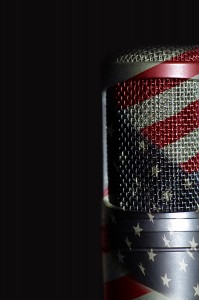We must stand for universal human rights

Twitter’s actions are certainly well in line with other web titans like Google and Facebook when it comes to international freedom of speech issues. Twitter further defends its actions by the fact that the approach is not proactive, but reactive: tweets will be censored only on a case by case request by the government, and even then, the tweet will go out to the international audience as normal. They also promise transparency, with the tweet clearly showing that it has been censored by a “Tweet withheld” notification.
In fact, the company declares it will be good for freedom of expression. The company states, “We believe the new, more granular approach to withheld content is a good thing for freedom of expression, transparency, accountability— and for our users.” That’s right – curtailing full freedom of expression and complying with tyrannical dictators is now apparently a good thing.
Like any person or organization that tries to limit free speech, they rest their argument on its most flagrant vulgarities (banning pro-Nazi content in Germany, for example.) Of course, we all know the argument here, that is usually ended with the “… Then they came for me and there was no one left to speak out for me” quotation. However, the reality is much more concrete. Even global powerhouses like China are still regularly imprisoning people for inciting insurrection, even when their actions are as benign as that of artistic expression. One example of an artist imprisoned for anti-Communist sentiments, Ai Weiwei, uses Twitter for his outlet and has over 100,000 followers even though Twitter is banned in the country.
Of course, the brainy employees of Twitter and other web companies are smart enough to know that what they are doing isn’t aligned with the American spirit. If we take an entirely cynical view, we might easily say that the changes are motivated by pure greed for new markets. Twitter can’t enter certain international markets without a policy on selective censorship, so lust for expansion and capital blinds their sense of right.
However, their decision is likely more complex than this view. They may have made their decision by weighing the good that having a service like Twitter can bring to countries over the evil of censorship. After all, the tweets still go out and are viewed, even if they are removed after the fact. Furthermore, the censorship would most likely apply to a tiny portion of tweets, so that there might be an overall positive utility of the service. I’ll give Twitter and other web companies that benefit of the doubt and say that they are making a hard, yet very misguided decision and are not just seeing dollar signs in their eyes.
However, it doesn’t mean it’s the right decision. If Twitter does succeed in its move by opening up various international markets, more people will have access to the free-wheeling communication vehicle. However, it will not be a new freedom; no, it will carry with it the same veiled threat as any of their other methods of communication. Rather than the people knowing that pure freedom of speech exists and that they are being denied it by their government, the people of these other countries will instead learn a more sinister message: that those who should be beacons of free speech and human rights are instead complicit with their oppressors.
The American people must stand for universal human rights. We owe it to the people not granted such liberties to give them hope. We do not owe them our great technological services or real time communication technology. Without freedom of speech and human rights behind them, our technologies do little to support communication and at worst, could help identify dissenters. At the very least, these actions water down our ideals and make our freedom seem more like a personal luxury than a universal conviction. Please encourage Internet companies to support universal freedom of speech by refusing to comply with lower standards of human rights, no matter the location.
* Of course, these views are my own. I sometimes write about what I’m thinking, even though I’m no journalist and that this doesn’t have to do with start-ups, recruiting, jobs, etc.. I do run a web company though, and I am always disappointed to see how the most important companies in our industry often fail to inspire leadership in the area of international human rights.

